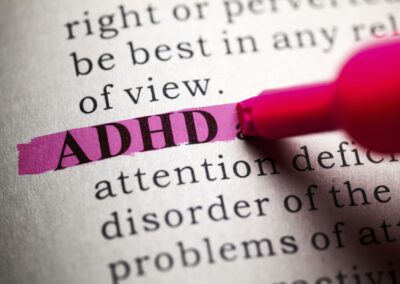‘Comprehensive sex education’ undermines students’ moral development
They can’t differentiate between genuine love and sexual exploitation
Tapio Puolimatka | Jan 11 2019 | ![]()
Does comprehensive sex education make children vulnerable to sexual exploitation?
The systematic sexual exploitation of 1400 children in Rotherham between the years 1997 and 2013, as well as widespread child abuse in other English towns, has led to an independent inquiry and several serious case reviews. These have been analyzed by Norman Wells, the director of the UK organization Family Education Trust, in his 2017 book Unprotected: How the normalization of underage sex is exposing children and young people to the risk of sexual exploitation.
According to the UK government definition, child sexual exploitation
occurs when an individual or group takes advantage of an imbalance of power to coerce, manipulate or deceive a child or young person under the age of 18 into sexual activity (a) in exchange for something the victim needs or wants, and/or (b) for the financial advantage or increased status of the perpetrator or facilitator. The victim may have been sexually exploited even if the sexual activity appears consensual.
Wells refers to Alexis Jay’s Independent Inquiry into Child Sexual Exploitation in Rotherham between 1997–2013. According to this report, children, including girls as young as eleven were
- raped by multiple perpetrators
- trafficked to other towns and cities in the north of England
- abducted, beaten, and intimidated
- in some cases, doused in petrol and threatened with being set alight,
- threatened with guns,
- made to witness brutally violent rapes, and threatened that they would be next if they told anyone.
The authorities in Rotherham were complacent toward underage sexual activity, because they assumed that young people were making a lifestyle choice. The Rotherham Inquiry pointed out that “children as young as 11 were deemed to be having consensual sexual intercourse when in fact they were being raped and abused by adults.”
The concerns raised by some of the parents were dismissed by the authorities. “In two of the cases . . . fathers tracked down their daughters and tried to remove them from houses where they were being abused, only to be arrested themselves when police were called to the scene.” The social workers thought that the concerned parents were not able to accept their children growing up. According to Wells,
“Comprehensive sex and relationship education” has created in young people the expectation that they will have a series of casual sexual relationships. Within this culture, sexual exploitation has been allowed to go undetected and vulnerable young people have been deprived of protection.
In the foreword to Wells’s book, Nottingham University Business School professor David Paton concludes:
A clear picture emerges of a culture in which underage sexual activity has come to be viewed as a normal part of growing up and seen as relatively harmless as long as it is consensual. Combined with official policies to encourage the confidential provision of contraception to minors, it becomes clear that current approaches aimed at improving teenage sexual health have frequently facilitated and perpetuated the sexual abuse of vulnerable young people.
Paton argues that “policymakers and professionals working in sexual health no longer have any excuse to ignore the evidence.” These are serious accusations. But what, exactly, are Paton and Wells condemning? What’s so bad about comprehensive sex education?
Separating Sex from Love—and Morality
Both Paton and Wells imply that the basic problem with comprehensive sex education is its amoral and relativistic approach, which separates human sexuality from its inherent connection with married love. This criticism has been philosophically developed by Dietrich von Hildebrand.
Von Hildebrand points out that instead of fostering objectivity, critical thinking, and autonomy, amoral sex education fails to develop young people’s potential for value-response and thereby fails to contribute to the unfolding of their human potential in general. Insofar as their moral capacity remains undeveloped, they become incapable of discerning and resisting sexual exploitation.
Von Hildebrand regarded the cultivation of value-responses such as love, faithfulness, admiration, veneration, and reverence as central for sex education. Separated from moral values, sex education becomes a way of narrowing and cramping the human personality. Amoral sex education undermines students’ moral agency, their capacity to evaluate desires, consider reasons, form intentions, and make and implement decisions based on their value experience. It fails to support the development of morally conscious persons capable of forming mature moral judgments based on their perception of values as moral agents who can make evaluative judgments without succumbing to relativism.
Morally “neutral” sex education teaches that there are no absolute sexual norms: all forms of sexual behaviour based on mutual consent are normal and acceptable. In a sense, young people are left to decide for themselves. But insofar as there are no adequate normative criteria to help them choose among competing lifestyles, their choices will not be free in any meaningful sense of the term. Instead, their choices will be arbitrary, based on only the whim of the moment, as Hanan Alexander points out.
When all sexual alternatives are presented as of equal value, young people will find it difficult to perceive the different moral implications and social consequences of various lifestyles.
Sexual experimentation numbs the sensitivity needed to perceive the true nature of love and the values inherent in it.
Amoral Sex Education Dulls Moral Sensitivity
The problem is not merely the reductive and neutralizing nature of amoral sex education, but the distortion of the personal, individual, and intimate nature of sexuality. Amoral sex education obscures the fact that sexuality receives its genuine significance in the unique life-long love relationship between married spouses based on total and irrevocable self-donation.
Because of its “objective” and biologically reductive approach, amoral sex education tends to use explicit sexual material, which violates young people’s moral sensitivity and natural modesty and thereby undermines their capacity for moral agency. It deprives children of their natural innocence, which includes freedom from sexual thoughts, images, desires, and behaviours. It undermines their capacity for what von Hildebrand calls “noble shame” or modesty, “which conceals something because it is particularly intimate.” The latter is grounded in the privacy and intimacy of sex and “in the intrinsic awe it inspires, awe of its extraordinary and mysterious quality,” as well as in “an instinctive dislike of the impudent, the irreverent, the defiling and the sinister.”
Undermining young people’s natural awareness that sexuality is personal, individual, and intimate can have negative effects. It can encourage a promiscuous lifestyle, make it more difficult to resist sexual abuse, and generally weaken the ability to resist one’s own impulses.
Separated from love, von Hildebrand writes, sexuality becomes “an intoxicating charm which draws man down to the animal level, a desecration of the great gift of sex—in short, a mystery of iniquity.” The “objective” representation of sex, devoid of moral values, “offends our sense of modesty because it takes no account of this shyness.”
Protecting children’s natural innocence is justified by pedagogical considerations as well. Sexualized children slip from their parents’ guidance, which threatens good parent-child relationships. Even Sigmund Freud admitted that the sexualization of children hampers their education: “We have seen from experience that seductive external influences can cause premature breach of the latent stage or its extinction . . . and that any such premature sexual activity impairs the educability of the child.”
Amoral Sex Education Undermines Moral Agency
Without a moral framework, young people do not have adequate criteria for choosing between competing life styles, which means that their choices become arbitrary. Amorality misrepresents the nature of human sexuality even more radically than immorality. The amoral approach neglects the very categories of morally right and wrong and thereby fails to foster the basic preconditions of human agency.
This is not a merely intellectual problem. It is an existential one.
The neutralizing sex education received at school undermines young people’s ability to comprehend the deep moral implications of sexual behaviour. It makes them insensitive to moral distinctions by conveying the impression that there are no absolute sexual norms: all forms of sexual behaviour based on mutual consent are regarded as normal and acceptable. Thus, neutralizing sex education deprives young people of the capacity to distinguish between genuine love and exploitative sexuality.
By reducing sexuality to a biological instinct, amoral sex education produces people who are guided by what is subjectively satisfying and controlled by their drives, appetites, and desires, rather than by what is intrinsically valuable. It fails to help young people to achieve moral transcendence and develop as persons guided by value-response. A biologically reductive sex education not only fails to develop young people’s capacity for the transcendence implicit in a value-responding attitude, it also fails to provide the preconditions for the development of their authentic subjectivity. Instead of becoming more alive, they become alienated from themselves.
Though its practitioners may be well-intentioned, comprehensive sex education does not offer a solution to sexual exploitation. On the contrary, it is part of the problem, since it fails to develop students’ capacity to differentiate between genuine love and sexual exploitation. What is needed is a form of sexual education that is oriented to married love and the virtues required by a stable nuclear family.
Tapio Puolimatka is a Professor of Educational Theory and Tradition at the University of Jyvaskyla, Finland, and an Adjunct Professor of Practical Philosophy at the University of Helsinki, Finland. His research is mainly in the areas of educational and moral philosophy. This article has been republished from Public Discourse.





